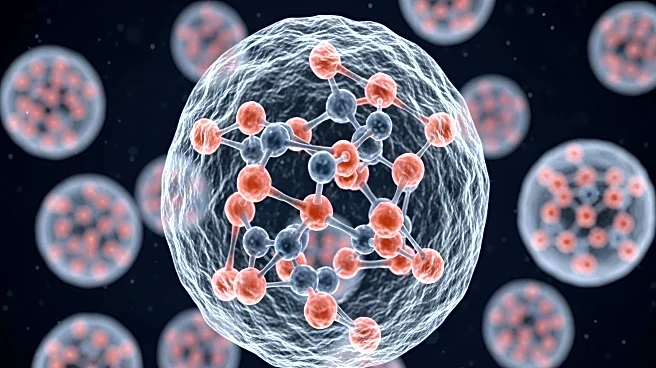What's Happening?
A recent study has focused on the critical role of lipid quality control in the activity loss of mRNA within lipid nanoparticles (LNPs). The research identified that certain ionizable lipids, particularly
those with unsaturated tails, contribute to mRNA lipid adduction, which affects mRNA function. The study utilized ion-pairing reverse phase liquid chromatography to analyze sa-mRNA encapsulated in LNPs, revealing that storage temperature significantly impacts mRNA lipid adduction. The presence of a late-eluting peak in the chromatographic analysis indicated potential thermosensitive mRNA modifications. The study further explored the role of ionizable lipids in mRNA lipid adduction, finding that specific reactive species in these lipids are responsible for the modifications.
Why It's Important?
This research is significant as it sheds light on the stability and efficacy of mRNA-based therapeutics, which are crucial in the development of vaccines and other medical treatments. Understanding the factors that lead to mRNA activity loss can help improve the design and storage of LNPs, ensuring that mRNA remains functional and effective. This has implications for the pharmaceutical industry, particularly in the production and distribution of mRNA vaccines, where maintaining the integrity of the mRNA is vital for vaccine efficacy. The findings could lead to improved formulations that enhance the stability and performance of mRNA therapeutics.










